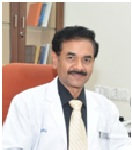
C MallikarjunaRao
Manipal University, India
Title: Hepatoprotective and Pharmacokinetic studies of silymarin liposomes in alcohol and D-galactosamine induced toxic models
Biography
Biography: C MallikarjunaRao
Abstract
Extensive studies have been made for improving bioavailability of silymarin through various dosage forms, however not much information is availableto target hepatocytes and immune cells. Thus, the present study was designed to develop a formulation with a combination of liposomes and phytosomes. Conventional, PEGylated and charged liposomes (Dicetyl phosphate and Stearyl amine) of silymarin were prepared by film hydration method. Based on the entrapment of silymarin, 6:1lipid-cholesterol molar ratio was selected for development of various liposomal formulations. Formulations were optimised for their particle size using high-pressure homogenizer and stability during freeze drying using 5%w/v sucrose as cryoprotectant. Conventional, DP and PEGylated formulations showed better release profile at pH 1.2 and 7.4 compared to silymarin alone. These liposomes were screened in vitro on Chang liver cells and in vivo in Wistar rats against toxicities ofD-galactosamine and alcohol. Cell cycle analysis showed that the formulations were better in preventing D-galactosamine induced cell cycle arrest in S-Phase.Conventional and PEGylated liposomal formulations showed better protection in Chang liver cells and screened in vivo.Conventional liposomes of silymarin showed better hepatoprotection, and better anti-inflammatory effects when compared to silymarin suspension in both models. The pharmacokinetic results upon oral administration of silymarin and its conventional liposomes showed that conventional liposomes increased Cmax more than five times compared to silymarin suspension in normal rats and almost six times in alcohol induceddiseased rat.
